As high-profile Fort Collins storefronts sit vacant, here's why filling them is so hard
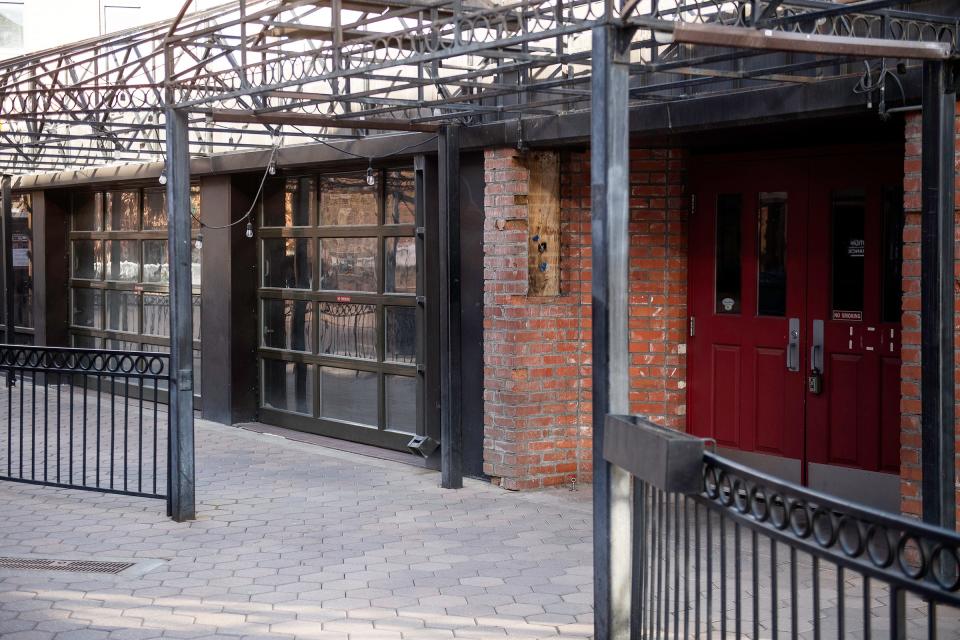
CooperSmith's Pub & Brewing Co. closed its Poolside location in Old Town Square more than a year ago, and the 8,300-square-foot space still sits vacant.
Various entities have looked at it, but as of late November, no one had signed on the dotted line. Progressive Old Town Square, which owns the building, has a verbal agreement with a tenant who wants one-third of the space, meaning the building will have to be split in two, said owner Brian Soukup.
Soukup believes he's close to leasing the remaining space. Two Denver eateries are interested in expanding to Fort Collins. "One is real close and one is still trying to decide if they're going to make the big move," he said. Whichever is most qualified and signs a lease first will get it.
The spot is one of several large, vacant commercial spaces along College Avenue in Fort Collins: the former Big Lots (30,200 square feet), Bed Bath and Beyond (67,260 square feet), Wells Fargo (29,763 square feet), Albertsons (50,000 square feet) and Macy's, the largest vacant space at 128,000 square feet.
The Northern Colorado market, however, is outperforming other markets, a reflection of the desirability of the area, said Aki Palmer, executive director at Cushman & Wakefield Real Estate in Fort Collins, which is brokering the Poolside space for Progressive Old Town Square.
"Northern Colorado is not as saturated as the Denver/metro area and the rest of the state," Palmer said. "We haven't seen a ton of new construction, which has helped."
Fort Collins has a relatively low retail vacancy rate of 3.9%, said SeonAh Kendall, the city's economic health director. The city is working with multiple developers and site selectors on the inquiries it gets and is trying to ensure it is aware of all the vacant sites for people who may not be familiar with Fort Collins.
The city is keeping an eye on the vacancies, especially at Midtown big box stores Bed Bath & Beyond and Big Lots.
The city has had a "couple inquiries from other retailers on certain sites, but some (building owners) have been harder to get ahold of ... they just haven't been as responsive as we'd hoped," Kendall said.
The city's retail vacancy rate typically hovers between 3% and 5%, but soared during the pandemic.
The spate of vacant buildings looks different than during the Great Recession, when numerous buildings along College Avenue stood vacant, including big boxes now occupied by Conn's HomePlus and Murdoch's Ranch and Home Supply. The former Toys 'R' Us building stood empty for about six years before Conn's opened in 2014.
During the Great Recession, millions lost their jobs, home foreclosures soared and shoppers were transitioning their spending from brick-and-mortar stores to online, forcing many national retailers to close, consolidate or downsize. It left about 650,000 square feet of vacant space along College Avenue, mostly big-box stores that moved out of the city or to other locations, including Linens 'N' Things, Circuit City, Toys 'R' Us and Shopko.
Today, the vacancies are caused by a perfect storm of changing consumer shopping habits, labor shortage, escalating property taxes, interest rates, lingering supply chain issues and the soaring cost of tenant improvements.
Most of the vacant space comes from large corporate entities that closed amid bankruptcies, falling sales or consolidation, leaving behind large spaces that can't be readily filled. "The larger it is the harder it is to lease," Soukup said.
The Albertsons location at 1636 N. College Ave. has been closed the longest — nine years — but is inching closer to a deal with the city of Fort Collins to become a community center. The complex has sat largely vacant since Albertsons closed in 2014 after a King Soopers store opened on North College, creating competition in the market, but the grocery chain retained its lease — running through 2030 — at the building after merging with Safeway the following year.
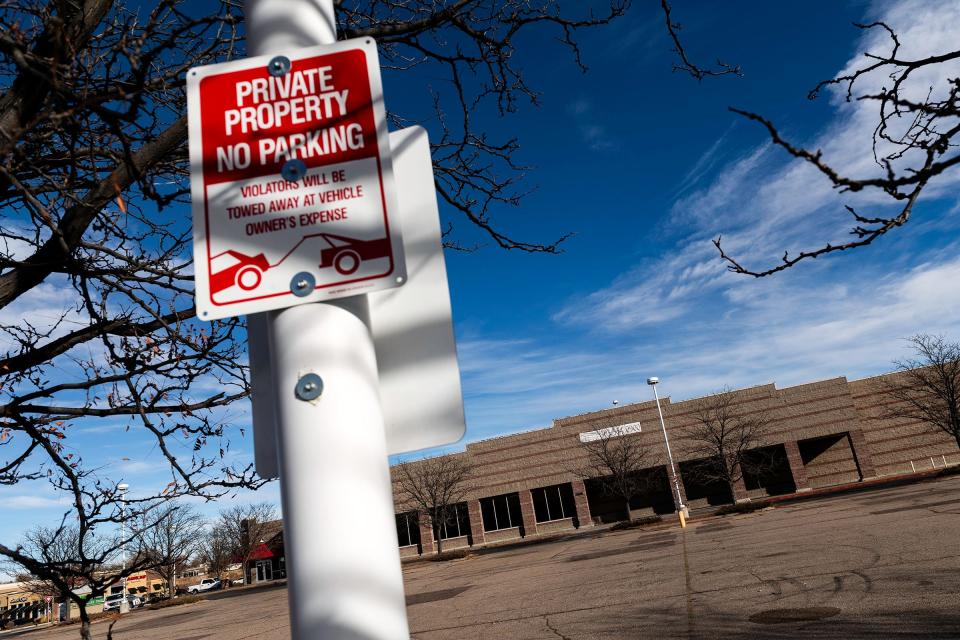
Retail, commercial spaces face multiple headwinds
Finding the right space is one thing. Paying for the improvements and operations is another. Multiple challenges are converging to create multiple challenges for the commercial real estate industry, Palmer said.
One is the size of some of the spaces, he said. "Tenants are trying to shrink and become more efficient," which was the case at CooperSmith's. "A lot of these retailers still want a presence for their customers, but overall the cost is going up when you look at the proposed utility rate hikes that are forthcoming as well as property tax increases that the majority of property owners saw this past cycle. It's a little bit of a perfect storm."
David Everitt, president of the Everitt Cos. in Fort Collins, said "what used to cost $80 to $100 per square foot now costs three or four times as much. It makes it difficult for a merchant to survive," he said. "Some are not, thus the vacancies."
Soukup is also worried about the cost of tenant finishes.
"The cost is unbelievable on tenant finish," Soukup said. "We got some bids (per square foot) we couldn’t believe. That’s a real problem. Payback now compared to few years ago is significant. It jacks rents up and everyone is dealing with it."
Palmer said they are now getting a second set of numbers on the cost of splitting the Poolside space and refurbishing the restrooms.
To renovate a restaurant space, "we're looking at a minimum of $100-$150 a square foot," he said. Finishing out a core and shell retail space to a finished product can cost between $200 and $250 per square foot. "At the end of the day, tenants can only pay a certain threshold. They need their rent to be a healthy percent of gross sales."
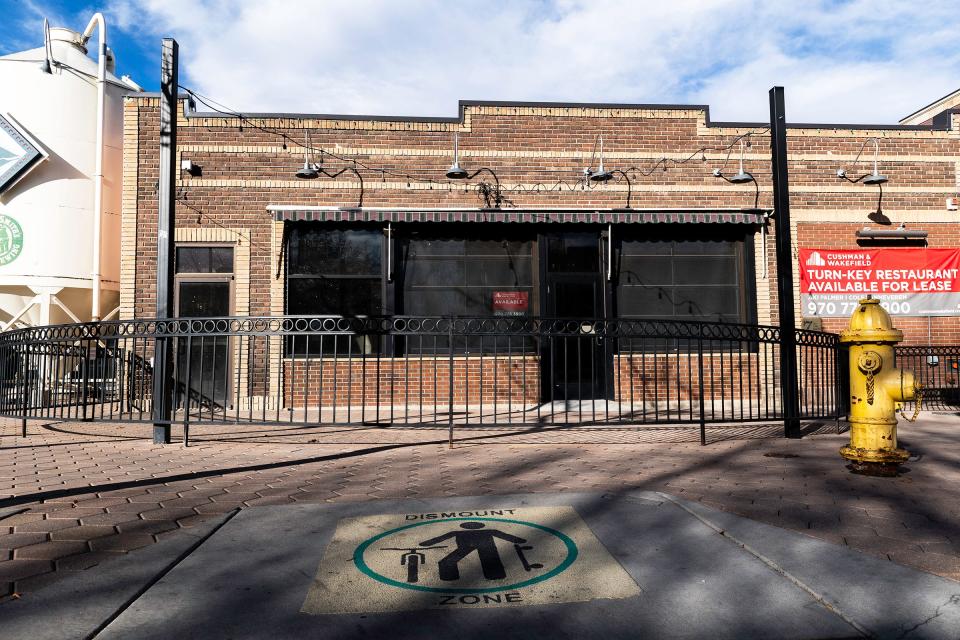
Add in up to 40% increases in property taxes and the profit margin shrinks, said Jake Hallauer, president with NAI Affinity in Fort Collins. A retailer whose lease is ready to expire "may close a location if it's not extremely profitable because their profits are taking a hit with additional property taxes," he said. "For a small restaurant, I wouldn't be surprised if the increase eats up one-third to half of their prior profits. It's a big challenge."
Cost increases "can be traced back to the devaluation of the dollar due to inflation reflected in rising raw material, manufacturing, transportation, and labor; all of which coalesce to impact the cost of tenant finish," Everitt said.
In addition, the limited availability of materials and fixtures and the reduction of skilled workers in the labor force has affected "not only the cost of stuff but has significantly increased the time it takes to finish a tenant improvement job. As the saying goes, 'time is money.' "
And, Everitt said, the ever-rising consumer expectation of tenant improvements add to the cost. "A nice environment is part of what attracts people into a store versus making their purchases online."
As a contractor who is doing some of those tenant improvements, Patrick Elder of Elder Construction said the pent-up demand created during the COVID pandemic "ripsawed" back in 2021 and 2022. "We saw a huge imbalance in supply and demand and labor," Elder said. "We had more projects than materials or people to put it in place." That led to a cost escalation of about 25%, well beyond the typical 6% cost escalation from year to year.
The labor shortage drove up wages so his company could compete with fast food and other employers that have upped their starting pay to about $20 an hour. That pushed labor costs up not only for new hires but existing workers whose salaries had to be adjusted accordingly, Elder said.
"From the construction side, you have construction costs that are high, lending costs are high. That makes it difficult for a tenant to move in," he said. It also makes it difficult for a building owner looking at tenant improvement costs and lease rates they can charge. "That's becoming really challenging."
As the cost of tenant improvements escalate, some of the larger national would-be tenants want landlords to contribute a substantial amount to tenant finishes, Palmer said. Some landlords are willing to do that; some are not.
Soukup, who's owned Progressive Old Town Square for decades, said it's always been his personal feeling that the tenant should pay most of the cost of tenant finishes. "It's a big commitment on their part," he said, but it makes them work harder to be successful.
The good news, Elder said, is that he anticipates interest rates will come down and material and labor costs will level off. "There is still a lot of pent-up demand. My concern is that we don't have a severe drop in interest rates and construction costs where everyone rushes out to build and puts us in the same position."
Here's a look at some of the other notable vacancies in Fort Collins and what we know about their past and future.
Fort Collins closes in on Albertsons contract
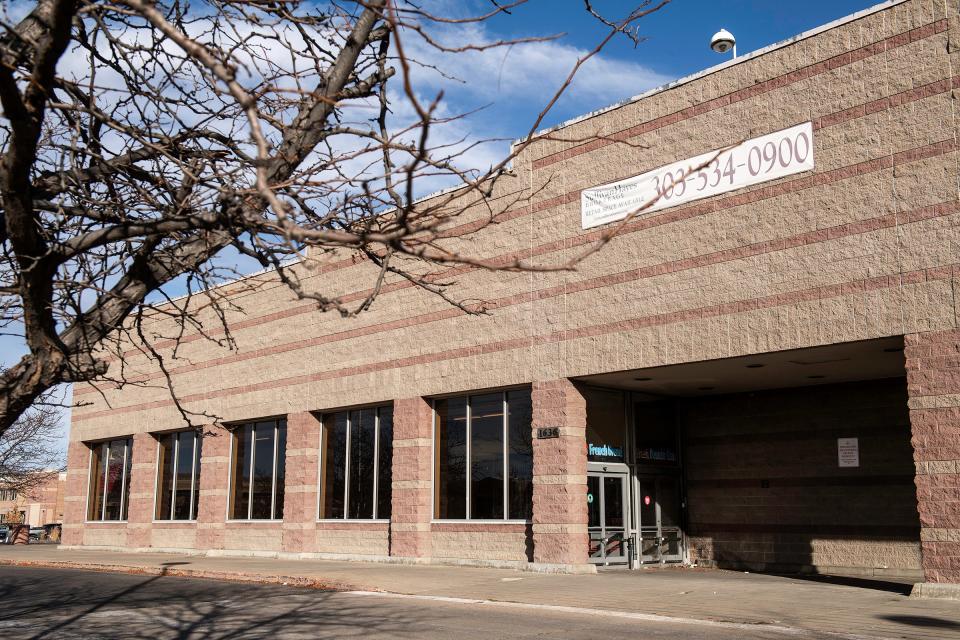
In October, the Fort Collins Urban Renewal Authority reached a preliminary agreement to buy the property in north Fort Collins for an as-yet-undisclosed amount.
The URA signed letter of intent to buy the property from San Diego-based Realty Income Corp., which is working on a purchase-and-sale agreement based on the terms of the letter. A letter of intent generally outlines the terms of a potential deal before all the details are hammered out.
With the holidays, details of the purchase-and-sale agreement are taking longer than anticipated, according to Josh Birks, the city's deputy director of sustainability.
The URA board will consider the agreement as early as its Jan. 25 or Feb. 22 meetings.
Once the URA board has the property under contract, it will start its due diligence, making sure it knows exactly what it is buying, how much it will cost, where the funds will come from and what renovation might cost.
After that, the city will re-initiate engagement with the North College community, similar to what it did in 2020 around the North College Funding Plan, Birks said. "That information will eventually lead to a request for proposals that will be used to determine a partner for the URA to collaborate with."
Big Lots and Bed Bath & Beyond
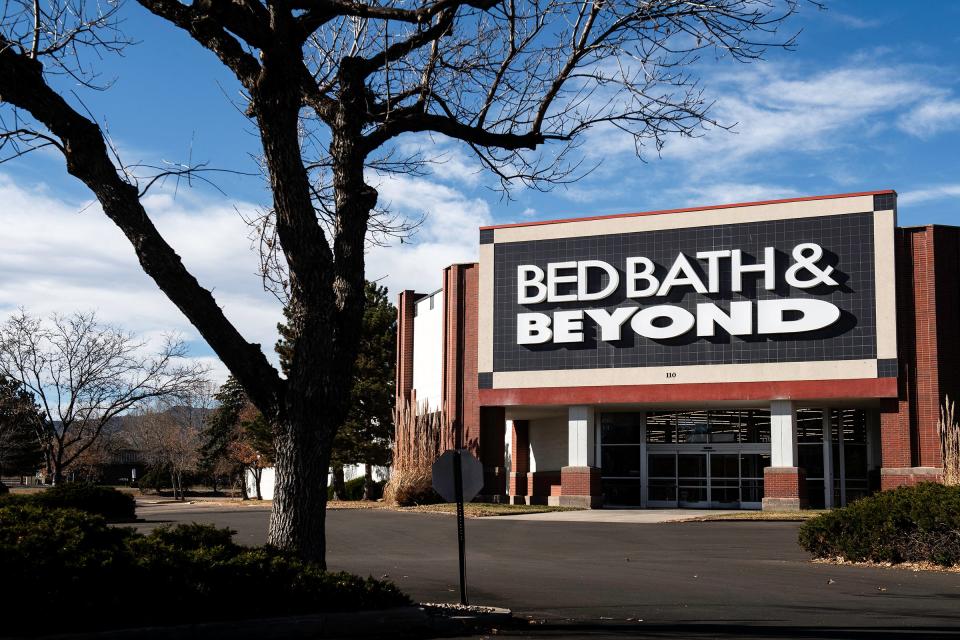
In January, Big Lots shuttered its store at 126 W. Troutman Pkwy., along with three others in Colorado, to increase revenue, which was down 9.8%.
Bed Bath & Beyond, 110 W. Troutman Pkwy., closed in June after filing for bankruptcy. Its brand was purchased by Overstock.com, which recently changed its name and relaunched its website as BedBathandBeyond.com. While the brand is back, the brick-and-mortar stores are not expected to make a return, according to the company.
Combined, the two stores vacated nearly 100,000 square feet of space at the corner of Troutman Parkway and South College Avenue. This fall, Big Lots was the temporary home of a Halloween store.
Palmer said both buildings have leases that are either in process or have been executed but have contingencies tied to them, including "extremely high" landlord tenant finishes. Whether either deal goes through remains to be seen.
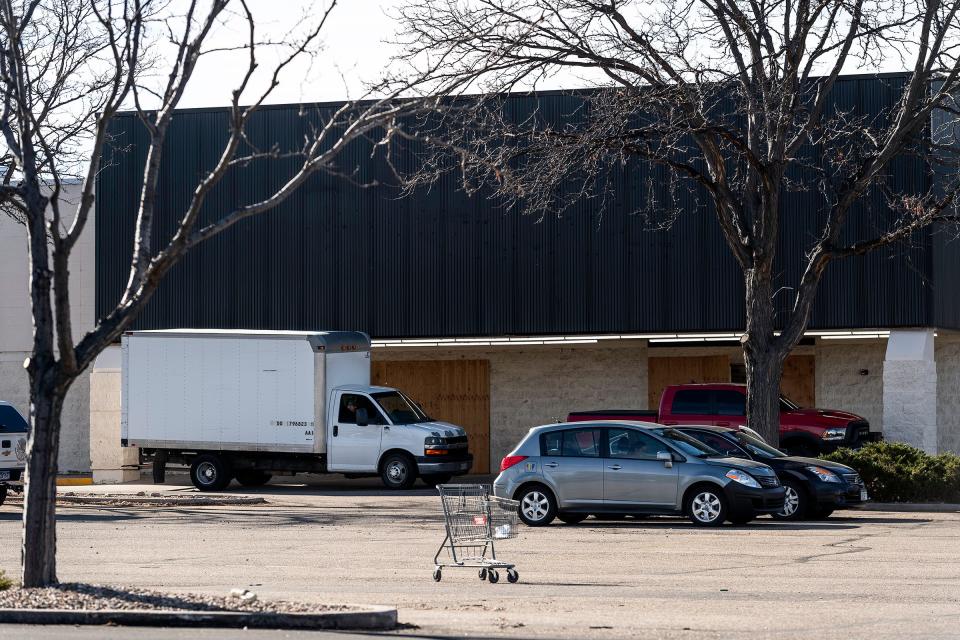
Big Lots President and CEO Bruce Thorn said the closures of some underperforming stores were due to inflation, which cut into consumers' discretionary spending.
Big Lots Inc., traded on the New York Stock Exchange, reported a net loss of $103 million for the third quarter of fiscal 2022 that ended in October. Its second-quarter results this year showed some turnaround. "We significantly strengthened our balance sheet through our recently closed sale/leaseback transaction, and we are prepared and positioned to navigate through the current economic challenges," Thorn wrote in the company's earnings report.
The Columbus, Ohio-based chain had been a staple of Fort Collins' discount shopping scene since 1987, according to the city's sales tax office. It could not be reached for comment.
The building was sold in January to BL Portfolio LLC of Santa Ana, California, for $2.39 million, according to Larimer County property records. SullivanHayes Brokerage in Denver is marketing the building. The company did not return phone calls seeking comment about the building.
Wells Fargo building seen as prime redevelopment site
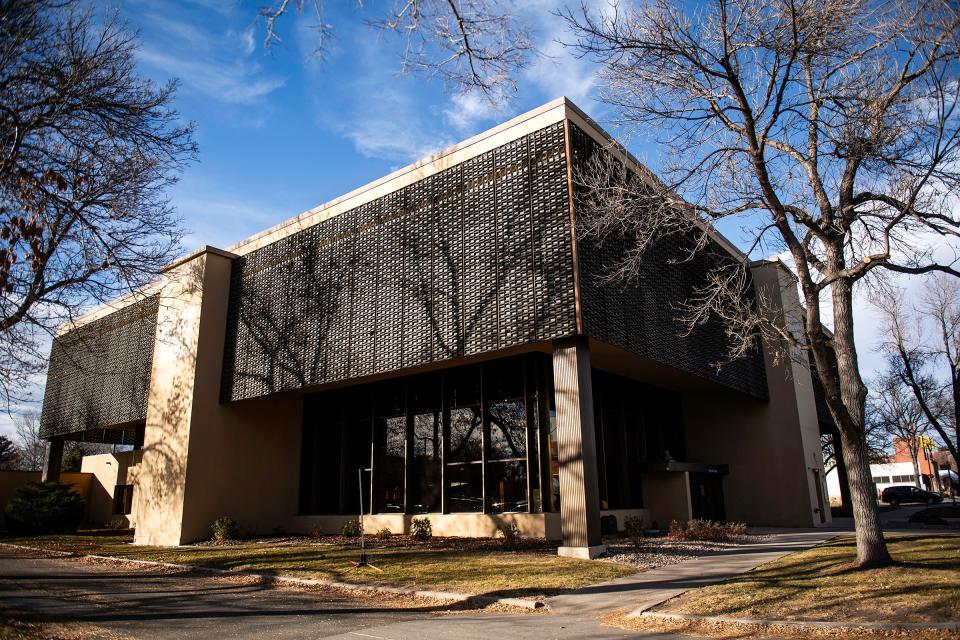
Wells Fargo Bank closed its main office at 401 S. College Ave. more than a year ago and put the building on the market after it moved its office across the street next to Target.
Wells Fargo's three-story, 29,763-square-foot downtown building was built in 1967 and remodeled in 1986, according to Larimer County property records. Its actual value was listed as $4.16 million.
Located in the heart of downtown, it has often been highlighted as a prime redevelopment site. More than a decade ago, before the Elizabeth Hotel was built, the Downtown Development Authority listed the location as a potential site for a long-sought downtown hotel. Those plans never materialized as a recession took hold and hotel financing dried up.
The site, now vacant, still ranks high on the DDA's recent survey of potential redevelopment sites within its boundaries. Crosbie Real Estate is handling the building's sale.
Wells Fargo has been tweaking its footprint in Fort Collins for several years. It closed its branch at 3500 John F. Kennedy Pkwy. in Fort Collins in 2015, transferring services and staff to the Horsetooth and College location.
Macy's and Foothills mall
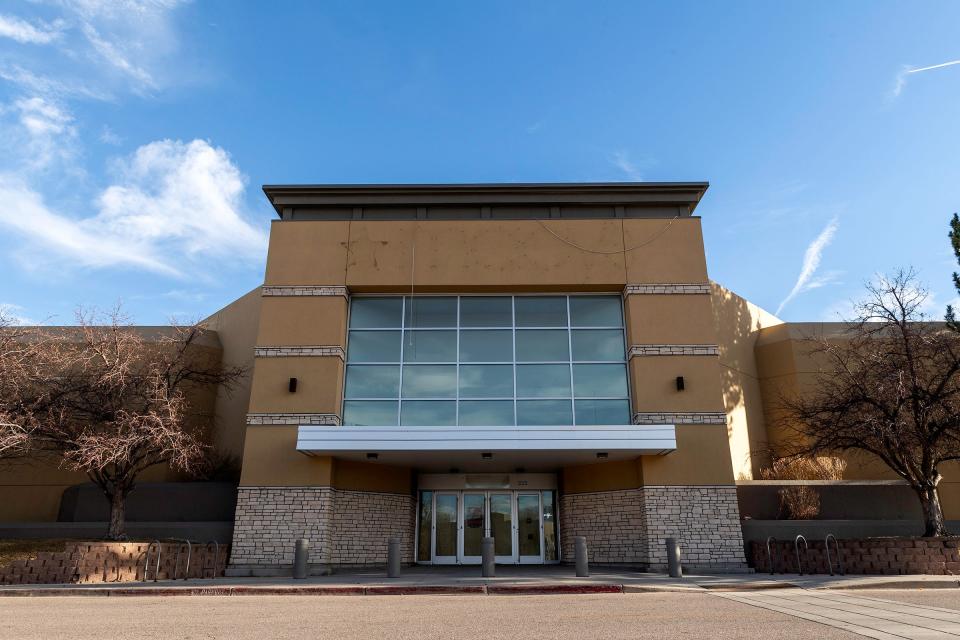
When Macy's closed in March, it was the last remaining department store in Fort Collins. It had been a mainstay at Foothills shopping center for decades under the brands Foley's, May D&F and Macy's, but the company scaled back its brick-and-mortar stores in the face of changing shopping patterns and increased online competition.
Today, its 128,000 square feet inside Foothills mall sit empty awaiting the redevelopment of the overall site.
Property owners McWhinney, Inc. of Loveland and Prism Places of California, which bought Foothills for $45 million in 2021, plan to convert the enclosed Midtown mall to a walkable, mixed-use location with new commercial, retail, office and apartments.
Owners filed conceptual plans earlier this year and have talked up their ideas at meetings with stakeholders and residents, but have yet to file formal plans.
Preliminary plans call for razing much of the interior mall, adding up to 750 apartments in three-story to five-story buildings, adding 75,000 square feet of office space, enhancing the visitor experience and increasing open-air shopping. Cinemark, Foothills Activity Center, the former C.B & Potts building and the exterior shops along College Avenue and across Foothills Parkway are expected to remain largely as they are.
Foothills Activity Center, owned by the city of Fort Collins, will be accessed from the outside once the mall is removed around it.
A spokesperson for McWhinney and Prism Places said there is no new information to share at this time.
This article originally appeared on Fort Collins Coloradoan: Why Big Lots, Macy's and other Fort Collins sites are still empty
